This modified challenge offers a head start on healthier habits
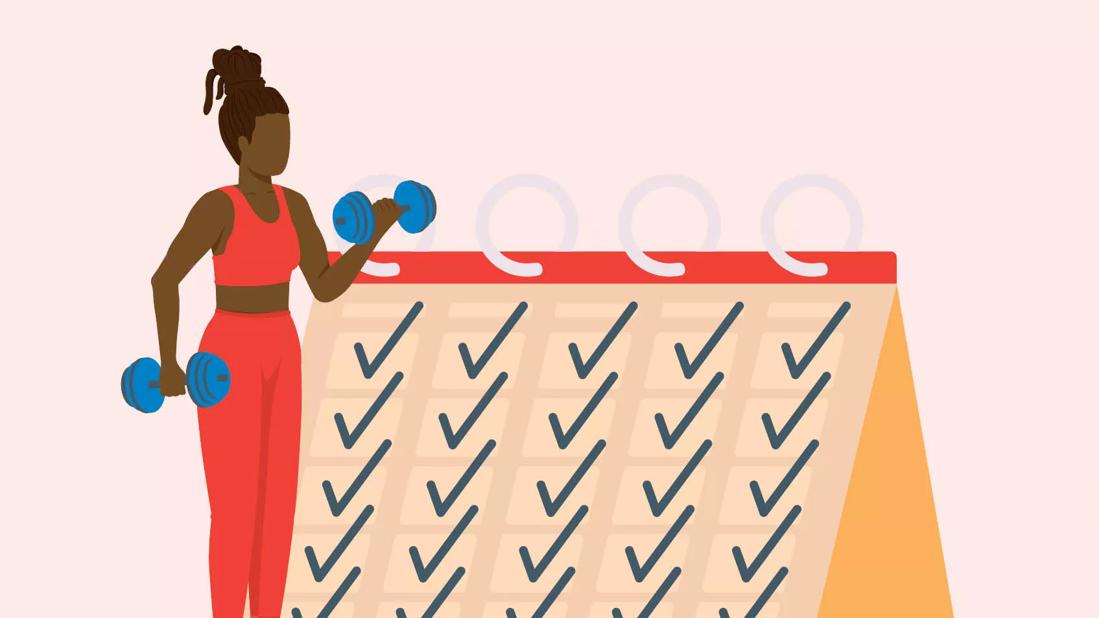
It takes time, dedication and discipline to pick up a healthy habit and keep it going. But sometimes, when we’re sucked into new routines and fitness challenges, we can find ourselves a bit in over our heads.
Advertisement
Cleveland Clinic is a non-profit academic medical center. Advertising on our site helps support our mission. We do not endorse non-Cleveland Clinic products or services. Policy
The 75 Hard Challenge, for example, puts a lot of pressure on overhauling different areas of your life by demanding that you follow these five strict rules daily for 75 days straight without stopping:
What makes following this list increasingly difficult is that if you miss just one activity or don’t follow these rules 100% of the time, you have to start over and try to maintain these rules for another 75 days.
“If you’re already in a high-level fitness area of your life, the 75 Hard Challenge likely aligns very much with some of the things you’re already doing,” says health and sports/performance psychologist Matthew Sacco, PhD.
“But for many people, especially beginners who are trying to start new healthy habits, if you have to start over anytime you take a break or don’t follow the rules, it’s going to be very difficult to find the motivation to keep going.”
Rather than rely on such a rigid routine, Dr. Sacco suggests participating in the watered-down version known as 75 Soft instead. Here, he covers how the rules are different from 75 Hard, and what benefits you’ll find when you start taking on this routine one day at a time.
Advertisement
75 Soft takes the same concepts from 75 Hard but makes them more accessible and less rigid. The emphasis in 75 Soft is to make sure you’re attempting to do your best to follow these rules every day:
If you miss one of these steps, take a break or try out an alternative approach — you’re not penalized and you don’t have to start the 75 days over again. Instead, you’re trusted to hold yourself accountable and focus more on the small things you’re doing to improve yourself and build a healthier life.
“When you’re trying to make improvements, it’s better and more helpful if you try to tackle one small thing at a time until you start to feel comfortable and get better over time,” notes Dr. Sacco. “The goal is not to push yourself so hard that you think of failing. The goal is to help yourself feel confident enough to keep going. And it feels really good when you accomplish a goal.”
If you’re not beholden to any one specific nutritional plan, what does “eating well” mean?
For starters, it comes down to being intentional about what you’re eating, how much you’re eating and how often you’re eating. And you can start by setting some goals, creating a food journal and figuring out what you want to get out of a nutritional plan.
“You want to create goals that are action-oriented or attainable, and you always want to apply the dead person rule: If a dead person can do it, it’s not a good goal,” says Dr. Sacco.
“For example, if you say, ‘I’m just not going to eat chips anymore,’ one way you can make that goal smarter is by asking yourself what are you going to do instead,” he continues. “If you’re just going to pull something out of your life, you’re going to leave a hole, and you still need to eat and be satisfied.”
A smarter goal, then, might be to replace potato chips with unsalted popcorn or nuts.
By creating goals for yourself, and then relying on a nutritional plan that fits within your goals, you’ll likely start to see small improvements in your overall health.
In general, healthcare providers recommend the Mediterranean diet as an entry point for anyone looking to eat healthier.
“There are 50,000 or more diets out there and all sorts of things you can try, but the easiest nutritional plan I always come back to is the Mediterranean diet because it’s the best thing for your heart health and it’s flexible,” says Dr. Sacco.
The hardest part of working out is finding the motivation to get moving. The second hardest part of working out is sticking with it for the long term.
Advertisement
In general and at minimum, we should try to do 30 minutes of moderate-intensity aerobic exercises every day, five days a week. Although that minimum requirement offers less activity than 75 Soft suggests you should do, it does account for the need of rest by building in one day of active recovery.
Designed to stimulate the recovery process and increase blood flow to your muscles, active recovery is a crucial component of fitness. Instead of sitting down or avoiding exercises completely on your off days, you can do low-intensity exercises like stretching, swimming, walking and even yoga to keep your muscles active and your body prepped for more intense exercises on other days.
“The idea is just to try not to have high-intensity stuff on that day,” says Dr. Sacco. “You want to do something where you’re continuing to move in a healthy, sustainable way.”
Much more achievable than drinking 1 gallon a day, this is an example of 75 Soft taking the concept of drinking water and making it smart. In general, the daily recommendation for water is 2.7 liters for women and 3.7 liters for men — and those amounts fluctuate based on factors like your activity level, metabolism and body type.
Advertisement
By drinking 3 liters of water a day, the intention is set on making sure the act of drinking water alone is incorporated into your daily life. In some way, it also gives you the freedom to replace some of the things you’re drinking (and some of the things you might be addicted to drinking) with water instead in order to achieve this goal.
“Staying hydrated is very important and it will likely reduce some of the cravings you have for other drinks over time,” notes Dr. Sacco.
One of these rules is not like the other, but it still fits into the goal of improving your overall health by giving you the freedom to be intellectually or creatively stimulated. And as we know our mental health and moods have a direct impact on our physical health, taking any time to ground ourselves and read something we enjoy can be beneficial, if only to help us slow down just a little.
“Reading, in general, is incredibly intellectually stimulating,” encourages Dr. Sacco. “It gets your brain going. It slows us down and keeps our minds from racing. And it activates different parts of your brain and your imagination.”
75 Soft is, for many people, much safer, more manageable and perhaps more helpful in the long-term. If and when you get to the end of your 75 days and you want to continue on the program, or start something else, you can! Or you can even level up and give 75 Hard a try, too, as long as you pace yourself and give yourself the grace you deserve when you inevitably have an off-day.
Advertisement
“When you’re starting a fitness routine or going through lifestyle changes, there will be some things that happen that you can’t account for that will get in the way — a flat tire, a sick day, a last-minute emergency,” acknowledges Dr. Sacco. “To have some flexibility, give ourselves some grace and the ability to be human can really be helpful.”
Other things to consider when starting 75 Soft (or any other fitness and lifestyle routine) is to do your homework. Talking to your healthcare provider, making an appointment with a physical therapist or exercise physiologist or even checking in with a personal trainer at your local gym can help shed some perspective on the smallest steps you can take to starting your new routine on the right foot.
“Extreme programs can have extreme results, but they can also have extreme consequences if you’re not prepared,” cautions Dr. Sacco. “By seeking advice from medically trained experts, you can get an idea of what activities and exercises can help you based on your unique experiences and personal health issues.”
Learn more about our editorial process.
Advertisement

The exercise — which you’ve probably been doing since grade school — can be intimidating, but proper form can help

Exercise lowers risk for heart conditions, improves mental health and reduces visceral fat that can compromise your organs
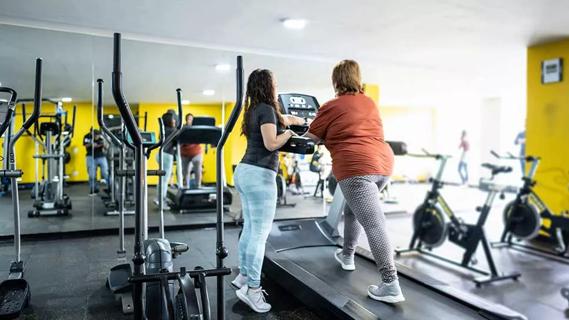
Ask questions, get referrals and consider if someone is a good fit for you and your fitness goals
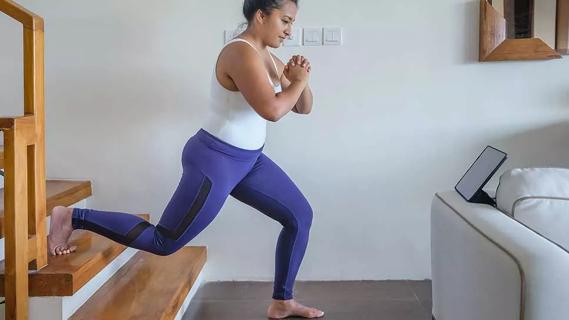
Expect a few bumps in the road, work out for the right reasons and give yourself some credit

Jump into the swing of things to improve your coordination, burn calories and get your heart rate going
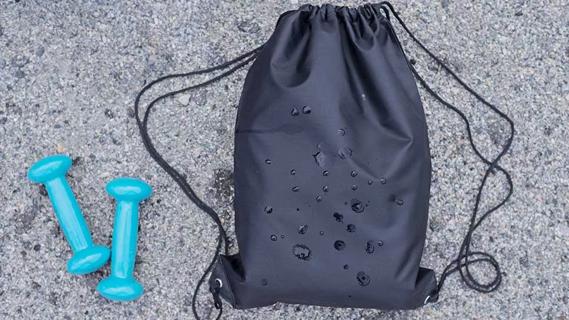
Walking with a weighted backpack is a low-impact, full-body workout that’s growing in popularity
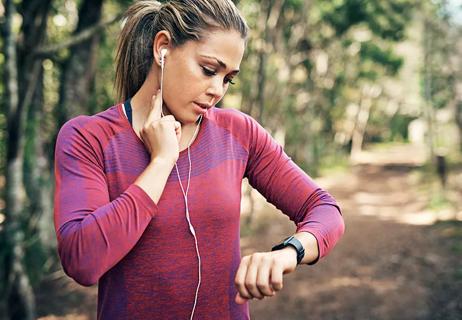
A super high heart rate means you’re burning more than fat
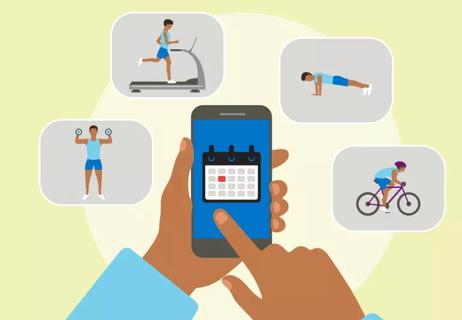
Meet your workout goals by accounting for frequency, intensity, time and type

Type 2 diabetes isn’t inevitable with these dietary changes

Applying a hot or cold compress can help with pain